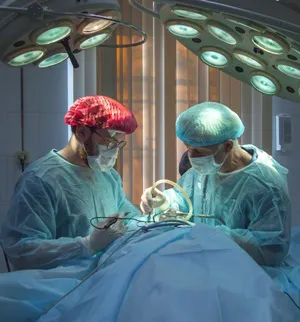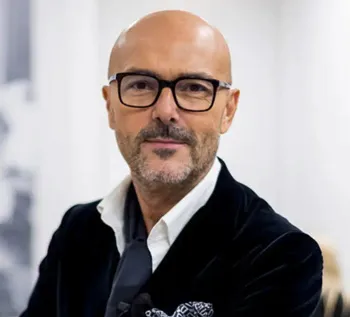
Are You A Hair Transplant Candidate?
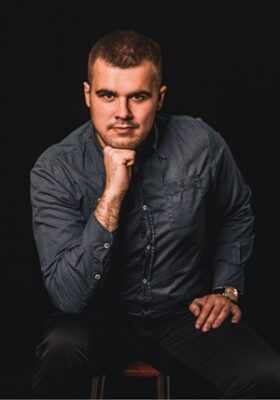 Dmitry Vechorko - Unsplash.com
Dmitry Vechorko - Unsplash.comNot everyone experiencing hair loss will qualify for a hair transplant procedure.
Even if someone has the financial means and the desire to undergo hair restoration surgery, they may not be a good candidate and will not qualify for the procedure.
Hair Transplant Surgery Should Always Be Your Last Option For Hair Loss
Hair restoration surgery should never even be considered until all other hair loss treatments have been completely evaluated and exhausted.
Once you have had hair transplant surgery, there is no going back.
As hair loss consumer advocate Spencer Kobren famous says on his podcast, "once you're cut, you're cut."
How To Determine If You're a Viable Hair Transplant Candidate
 Some people are good hair transplant candidates in theory but not in practice.
Some people are good hair transplant candidates in theory but not in practice.
Many people contemplating hair restoration or transplant surgery have not considered all the many moving parts that are involved.
If you’re a good candidate for a hair transplant, you’ll check yes for most of the following variables listed in the following paragraphs.
Are a biological male.
Historically, biological females are generally less viable hair transplant candidates than males. While it is definitely possible for females to have surgery, each case has to be carefully considered.
 Transgender/transsexual or similar situations will all need to be evaluated on an individual basis.
Transgender/transsexual or similar situations will all need to be evaluated on an individual basis.
Currently between the ages of 25 & 65.
Surgery is not advised for those still in their teens or early twenties or after age 65 except in certain circumstances.
There are exceptions to every hair restoration surgical candidate suggestion.
Suffering from androgenetic alopecia (AGA), known as male pattern baldness/ male pattern hair loss (MPHL).
Other types of hair loss, such as Alopecia Areata (AA) or Telogen Effluvium (TE), or other types of hair loss (Diffuse Shedding). These types of hair loss conditions may not be appropriate for restoration surgery.
 Etty Fidele on Unsplash.com
Etty Fidele on Unsplash.comYou need your own biological donor hair to be transported to areas of your scalp that no longer have hair.
People who are completely bald or don't have an abundant supply of donor hair will not be able to have transplant surgery.
Have been consistently and steadily losing hair for more than 5 years.
Although hair restoration physicians and surgeons will do pre-surgery testing, it's important to make sure the hair loss is consistent and ongoing before considering surgery.
Currently utilizing medically prescribed and supervised combination of hair loss medications.
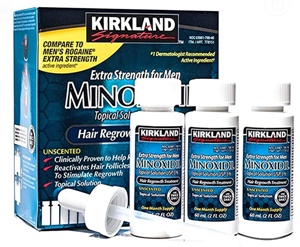 This would include but not be limited to a variety of topicals, orals, or non-surgical treatments such as PRP, Exosomes, Low-Level Light Lasers (LLLLT), Microneedling, or similar.
This would include but not be limited to a variety of topicals, orals, or non-surgical treatments such as PRP, Exosomes, Low-Level Light Lasers (LLLLT), Microneedling, or similar.Are psychologically prepared for surgery.
Some prospective restoration candidates benefit greatly from pre-surgical therapy (hypnotherapy) or other forms of supportive treatments (EMDR, EFT/Tapping, or similar).Understand the need to continue taking hair loss medications or related treatments after surgery.
 Even after having hair restoration surgery, hair loss is a progressive condition. If medications are not continued, hair will continue to fall out, and surgically transplanted hair may be at risk of falling out.
Even after having hair restoration surgery, hair loss is a progressive condition. If medications are not continued, hair will continue to fall out, and surgically transplanted hair may be at risk of falling out.Your hair loss has stabilized into a consistent pattern.
It's important to avoid major restoration surgery until hair loss has stabilized.Potential donor hair is medium to dark in color and medium to thick in density.
Donar hair, which is light-colored, may not be ideal. Hair which is super fine or paper-thin may also not be ideal for transplanting into other parts of the scalp.Donor hair is healthy and is neither stick-straight nor tightly curled.
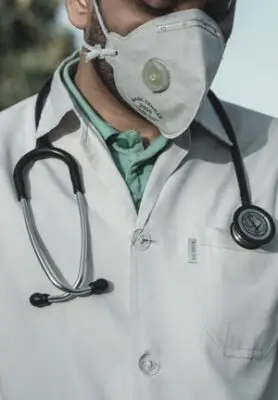 Physician Applied Low-Level Laser Light Therapy (LLLT)
Physician Applied Low-Level Laser Light Therapy (LLLT)Although donor hair that has a slight wave or curl is desirable because it will cover a wider area of the scalp, it is best if it is not highly texturized with a tight wave or curl.
The remaining hair follicles are healthy and have minimal DHT presence.
Hair restoration surgeons will do a complete examination before agreeing to go ahead with the surgery.
They will look for the presence of DHT in all of your current and donor follicles. Make sure you have a clear understanding of your hair's current and future DHT issues.
General physical health is excellent.
 Even though this is hair restoration surgery, it is still a medical procedure that requires some form of anesthesiology, either local or general.
Even though this is hair restoration surgery, it is still a medical procedure that requires some form of anesthesiology, either local or general.
If there are underlying health concerns, the procedure should not be considered until health is optimal. Some people who may be good transplant candidates may not be eligible for surgery.
This would include anyone with hemophilia or other potential diseases such as HIV or hepatitis. If pre-existing heart, liver, kidney, or other major organs are challenged, transplant surgery may not be possible. Some types of diabetic conditions might also rule out hair transplant surgery.
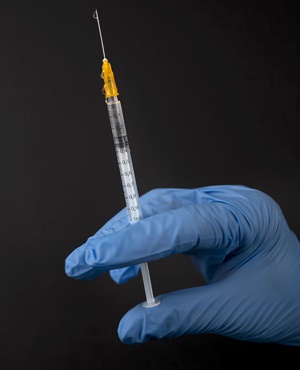 Make sure to discuss all your ongoing health issues with your hair transplant surgeon. They can decide if your health is viable enough for transplant surgery.
Make sure to discuss all your ongoing health issues with your hair transplant surgeon. They can decide if your health is viable enough for transplant surgery.
Have clear and very realistic expectations of surgical results and outcomes.
It's important to understand, before surgery, what results are reasonable and realistic.
Discuss this at length with your surgeon, and make sure to do your own research to understand what to expect after surgery.
You are psychologically preprepared for surgery and post-op results.
After surgery, there is a healing period where the scalp, roots, and follicles may not look very good. It takes time for the results of the surgery to settle and for the transplanted hair to begin growing in properly.
Would be willing to shave all or part of the scalp if required for the type of recommended hair restoration surgery.
 Physician - Unsplash.com
Physician - Unsplash.comDepending upon the type of restoration surgery you select, and your surgeon recommends, you may be required to shave all or part of your scalp. This is not always the case.
Do your research to be prepared to discuss your options.
Hair restoration surgery has been researched extensively.
Hair transplant surgery is a major life-changing commitment. It's critical that surgery be researched extensively. It's also critical to find the most experienced and highly qualified restoration surgeon available to you.
Surgery is the absolute last option available and has been delayed as long as possible.
Hair restoration surgery should always be the very last possible option available for addressing your progressive hair loss condition.
Even after you have decided restoration surgery is your best remaining option, take your time and put it off as long as possible.
Multiple consultations with hair restoration medical experts have been undertaken.
No two hair restoration surgeons are alike. They have different types of training, areas of expertise, and philosophies about the best type of surgeries for specific hair loss conditions and patterns.
Every surgeon has their own style and personality. Talk to at least 3 in order to find the surgeon you feel most comfortable with.
Hair restoration surgery is not a one-and-done procedure. Many people have had multiple surgeries over the course of many years. Find a surgeon you completely trust and resonate with and don't work with anyone else.
All potential post-operative risks and results have been carefully evaluated.
If you work with a highly skilled hair restoration surgeon with a great reputation who has extensive time on tissues (ToT) and a great surgical team, changes of post-operative problems are minimal.
They can happen but are the exception to the rule, especially when working with a great surgical team. Even if there is minimal risk, do your research.
Plan for the best results but be prepared for problems if they occur.
Family members are fully supportive of hair restoration surgery goals.
If you do pre-surgery research, have multiple consultations, work with a highly skilled and experienced surgeon, and are prepared for the outcome, it's likely you won't have any nasty surprises.It's critical that your life partner and family are supportive of your surgical goals. If something goes wrong, you will need their help and support.
When your partner or family is against surgery, take their feedback very seriously since you may have serious problems if you go ahead and get bad results.
Have financial means to handle all surgical costs.
Hair restoration surgery may be very expensive, especially with the top surgeons in the field. It's critical that you work with the best surgeon you can possibly afford.
Restoration surgery is generally not covered by any traditional health insurance in most countries (the USA or similar).
Canada and some other International countries may cover some or all hair transplants or related medical expenses. Many reputable surgeons will have payment plans or similar options available.
Summary - Are You A Hair Transplant Candidate?
Hair transplant candidates who have answered yes to most of the above items are likely to be considered good or viable hair transplant candidates. They are also more likely to have a good outcome.
Social Media Network Information
Please follow us on Twitter at: https://Twitter.com/HairBoutique. I look forward to meeting new people from all walks of Twitter and learning from their Tweets.





